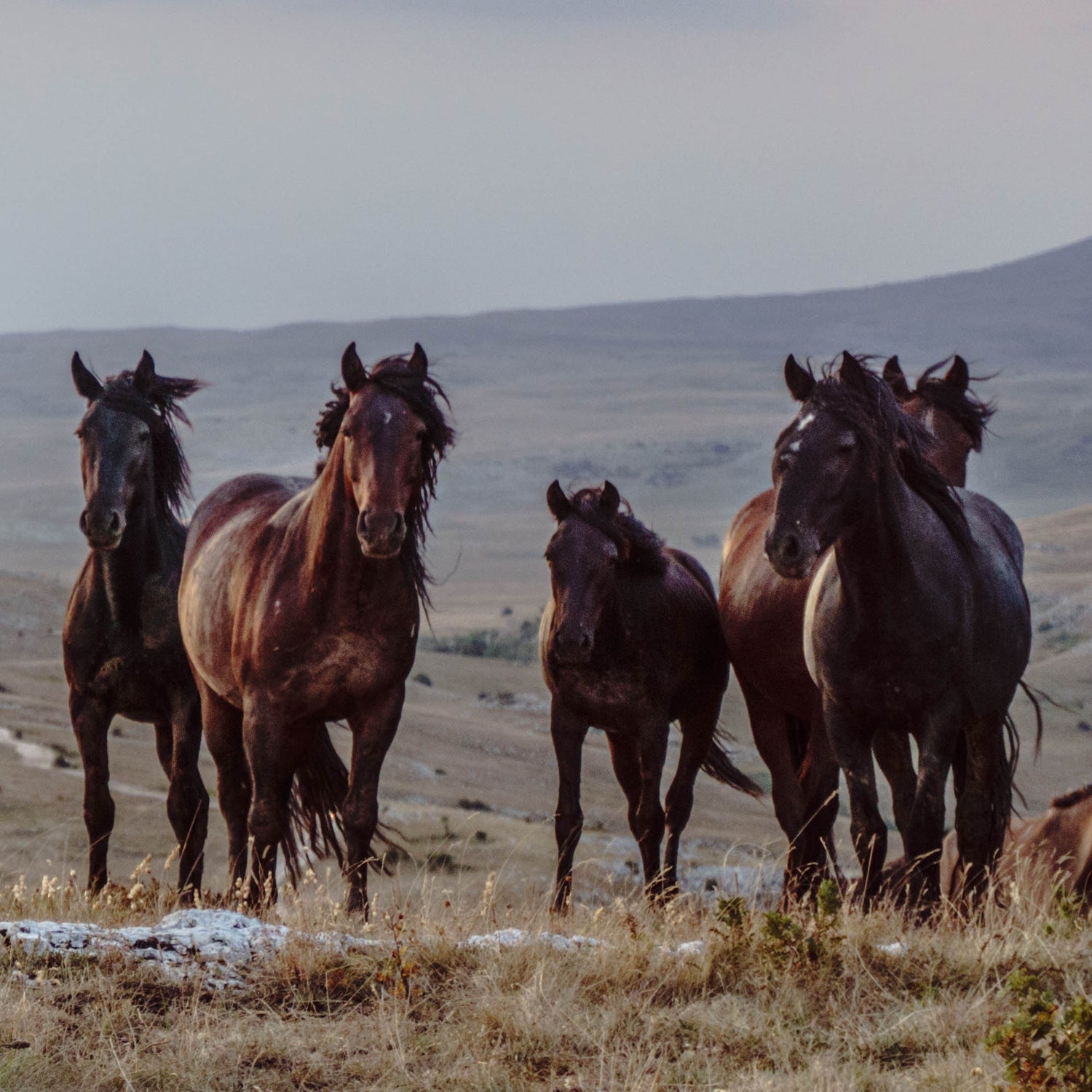Wild horses in the West are not free to roam where they please. A 1971 law that protects the animals also limits their range to where they existed at that time. Given the horses’ reproductive ability—a herd doubles in size every four years—and the confines of the law, the animals have overpopulated their range by more than twofold of what scientists say the land can support. Opinions on what to do about overpopulation vary from making dog food with their meat to expanding the animal’s rangeland, but nearly everyone agrees that doing nothing comes with serious environmental risks.
The question is: How do we control the population in a humane, sustainable way? David Philipps, whose book Wild Horse Country ($28; ) hit shelves last week, may have found a partial solution. The New York Times reporter claims that a contentious network of government agencies, advocacy groups, and livestock producers has turned the issue from a simple biological debate to a full-blown modern environmental fight with no single answer.
Wild Horse Country is Philipps’ second book and covers much of his previous tracks, painting a thorough canvas of the history, prehistory, myth, policy, people, and current circumstance of wild horses in the West. He camps with a paleontologist unearthing fossilized horses in Wyoming. He watches a Bureau of Land Management–contracted helicopter round up horses in Nevada. He drinks coffee with ranchers and visits a federal horse-holding facility with the head of the BLM wild horse program. Philipps’ reporting frames an uncertain future for wild horses in the West, and some of the most insightful moments in the book come near the end, when, as a partial solution to controlling mustangs, he posits a wild answer: mountain lions.
The final chapter defrays the oft-quipped belief that wild horses have no natural predator. Lions eat a significant though difficult-to-measure percentage of young mustangs, he argues, and in places where lions can and do exist, they should be left alone to stalk water holes and bottleneck passes. A third of wild horse range is also home to mountain lions. If the BLM had fewer horses to worry about in those areas, it would be a step in the right direction, Philipps says.
“I’m not saying lions are the answer, but I’m saying they’re an answer,” he told �����ԹϺ���. “They’re a big answer, and so far they’ve been ignored.”
Philipps won a Pulitzer Prize in 2014 for his coverage of returning veterans in the Colorado Springs Gazette, but he has also covered the wild horse battle for years. In 2012, he tracked down a southern Colorado man buying up mustangs and selling them for slaughter in Mexico, to be later served as steaks in Europe. He discovered that the Bureau of Land Management, the agency that manages wild horses, was turning a blind eye to the obvious, unsavory practice. After broke—and after Interior Secretary Ken Salazar threatened to for his meddling—the BLM limited the number of horses an individual could buy.
“We passed a law that protected the myth of wild horses but didn’t address the biology.”
Philipps’ voice is, for the most part, a welcome, even-handed contribution to the conversation. He doesn’t own horses or ride horses. His distance from domestic horses prevents any digression under saddle or otherwise, sparing us warm-and-fuzzy moments in the barn or astraddle a purebred. But that’s not to say he doesn’t occasionally ride off into a rosy sunset.
“The mustang…embodies the core ideals of America,” Philipps writes in Wild Horse Country. “It is not pedigreed. It has no stature. Instead, it derives its nobility from the simple toughness of its upbringing in a free and open land. It is beholden to no one. It will not be subjugated. It is superior to its domestic brethren because it has the one thing Americans say they yearn for most: freedom. It is the hoofed version of Jeffersonian democracy.”
That’s laying it on pretty thick, but it reflects a very real aspect of the wild horse conversation: Some people view the horses as icons of freedom or democracy or the vanishing West. Philipps spends plenty of time in the advocacy camps, supporting his opinions with experts and experience, and he seems to approach the people and discussions with an open mind. Mountain lions as a way control horse populations has yet to garner much support, but the idea is a welcome alternative to the prodigal hashing out of whether to euthanize wild horses.
“The whole controversy has come down to kill them or not kill them, but I don’t think it’s that simple,” Philipps told �����ԹϺ���. “Using more PZP [horse contraception] is probably the easiest and quickest thing to do, but it’s a lot bigger than that.”
On October 18 and 19, the citizen-staffed BLM met in Grand Junction, Colorado. The agenda for this month’s meeting was more or less the same as it’s been since its inception in 2011: help the BLM find a way out of the ever-deepening wild horse hole. The board’s nine nongovernmental members represent a spectrum of interested, informed parties, from veterinarians to equine behaviorists to Ben Masters, a writer and filmmaker who rode mustangs from Mexico to Canada and who is quoted in Philipps’ book.
“We passed a law that protected the myth of wild horses but didn’t address the biology,” Philipps said when asked what impression five years’ worth of reporting had left him with. “That’s what we’re facing now.”


